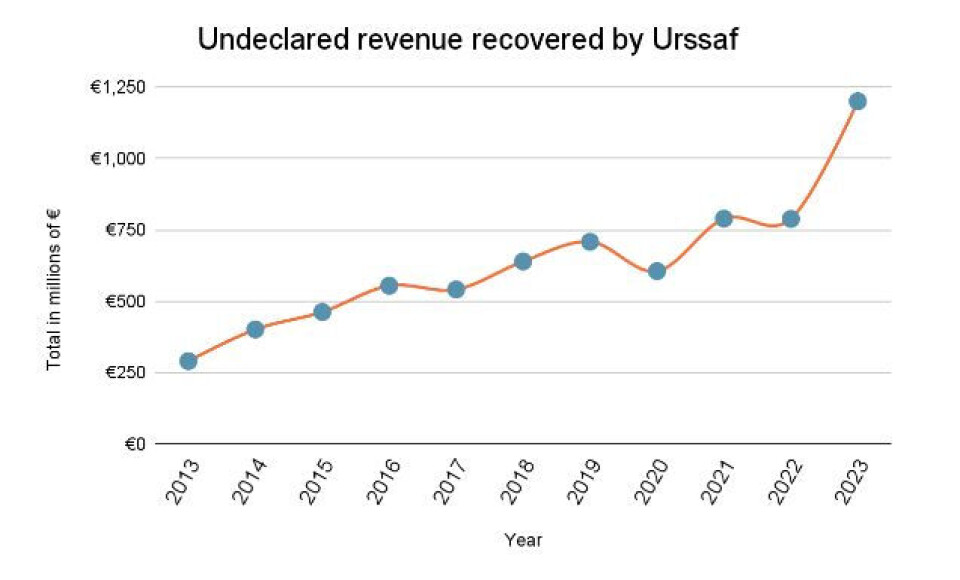-
Unregistered ‘faith healer’ in France banked up to €40,000 a month
Investigators found gold bars, cash and appointment books at his home in Charente-Maritime
-
New website for self-employed in France shows ‘no common sense’
Union des Auto-Entrepreneurs criticises online ‘one-stop shop’ and how some self-employed missed out on social charges help
-
Self-employed status in France must be on invoices and bank accounts
Urssaf says independent workers can only benefit from new legal protection if status is on work-related documents
More checks to catch undeclared workers in France
The country loses up to €10billion in tax and social charges due to illicit work each year

France has stepped up its checks on undeclared work, recovering 50% more lost revenue over the last year than in 2022. It now plans to accelerate the process by hiring more inspectors.
Companies that underreport or fail to declare salaries paid out over one billion euros in 2023 following inspections by Urssaf, the body responsible for collecting French social security contributions.
As part of a government campaign to rein in France’s illicit economy, the government has given Urssaf more resources, including means to hire up to 240 more inspectors by 2027, and artificial intelligence systems to perform checks.
Read also: How French tax officials are using AI to track fraud
In total, if lost pension contributions are taken into account, undeclared work, or travail au noir, reportedly costs France up to €10billion each year.
Urssaf distinguishes two types of losses from undeclared work:
- The first is work that is completely undeclared, such as that done only for cash, which costs the country around €6.2billion-7.8billion in 2022. This would include private individuals who pay gardeners and cleaners for work in their homes although they do not appear to be the priority target of Urssaf to date.
- The second kind is seen in ‘errors’ in tax reporting, in which workers and companies ‘forget’ to declare all of their earnings, or declare them incorrectly, including for business expenses, bonuses, or benefits.
Over the past ten years, the amounts of undeclared revenue recovered by Urssaf have steadily increased:

The rise of the gig economy
Delivery people, private drivers, farm workers and even builders are frequently ‘hired’ as independent workers (auto entrepreneurs) in order to circumvent France’s strict employment laws.
While in some cases this is legitimate, Urssaf sees this gig economy, or uberisation, as a ploy to allow companies to avoid paying social security contributions. In such cases, it is the employer that is sanctioned rather than the worker.
Part of the role of Urssaf’s new artificial intelligence systems is to help identify independent workers who are employed in all but name so that inspectors can visit their employer.
Read more
France to use spies and wire-tapping to track down tax evaders
Tax authorities discover 120,000 undeclared swimming pools in France
























